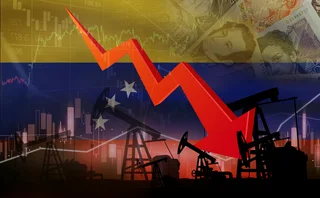Energy Risk Asia Awards 2015: The winners
Excellence in Asia recognised across commodities, energy trading and risk management

By Roberto Barros, Alex Davis, Stella Farrington, Joe Marsh and Mark Pengelly
Profiles of the winners can be found below.
- Asia energy dealer of the year: Citi
- Asia end-user of the year: Bharat Petroleum
- Asia oil dealer of the year: BNP Paribas
- Asia metals dealer of the year: ANZ
- Asia exchange of the year: DME
- Asia technology house of the year: Aspect Enterprise Solutions
- Asia information provider of the year: Thomson Reuters
- Asia commodity finance house of the year: SG CIB
- Asia commodity research house of the year: ANZ
More on Risk management
Energy firms revisit CTRM systems as tech advances
Energy executives mull how to tap into the explosion of new technologies entering the risk space, but systems selection must consider future business needs, writes Yefreed Ditta at Value Creed
CRO interview: Brett Humphreys
Brett Humphreys is head of risk management at environmental markets specialist Karbone. He talks to Energy Risk about the challenges of modelling outcomes in unpredictable times and how he’s approaching the risks at the top of his risk register
How geopolitical risk turned into a systemic stress test
Conflict over resources is reshaping markets in a way that goes beyond occasional risk premia
Energy Risk Debates: the influence of risk culture
The panellists examine different risk cultures and discuss the risk manager’s role and influence in creating a risk culture
Energy Risk reaction: Venezuela and oil sanctions
Energy Risk talks to Rob McLeod at Hartree Partners about the energy risk implications of the US’s control of Venezuelan oil
CRO interview: Shawnie McBride
NRG’s chief risk officer Shawnie McBride discusses the challenges of increasingly interconnected risks, fostering a risk culture and her most useful working habits
Increasingly interconnected risks require unified risk management
Operational risk is on the rise according to a Moody's survey, making unified risk management vital, say Sapna Amlani and Stephen Golliker
Energy Risk Europe Leaders’ Network: geopolitical risk
Energy Risk’s European Leaders’ Network had its first meeting in November to discuss the risks posed to energy firms by recent geopolitical developments







